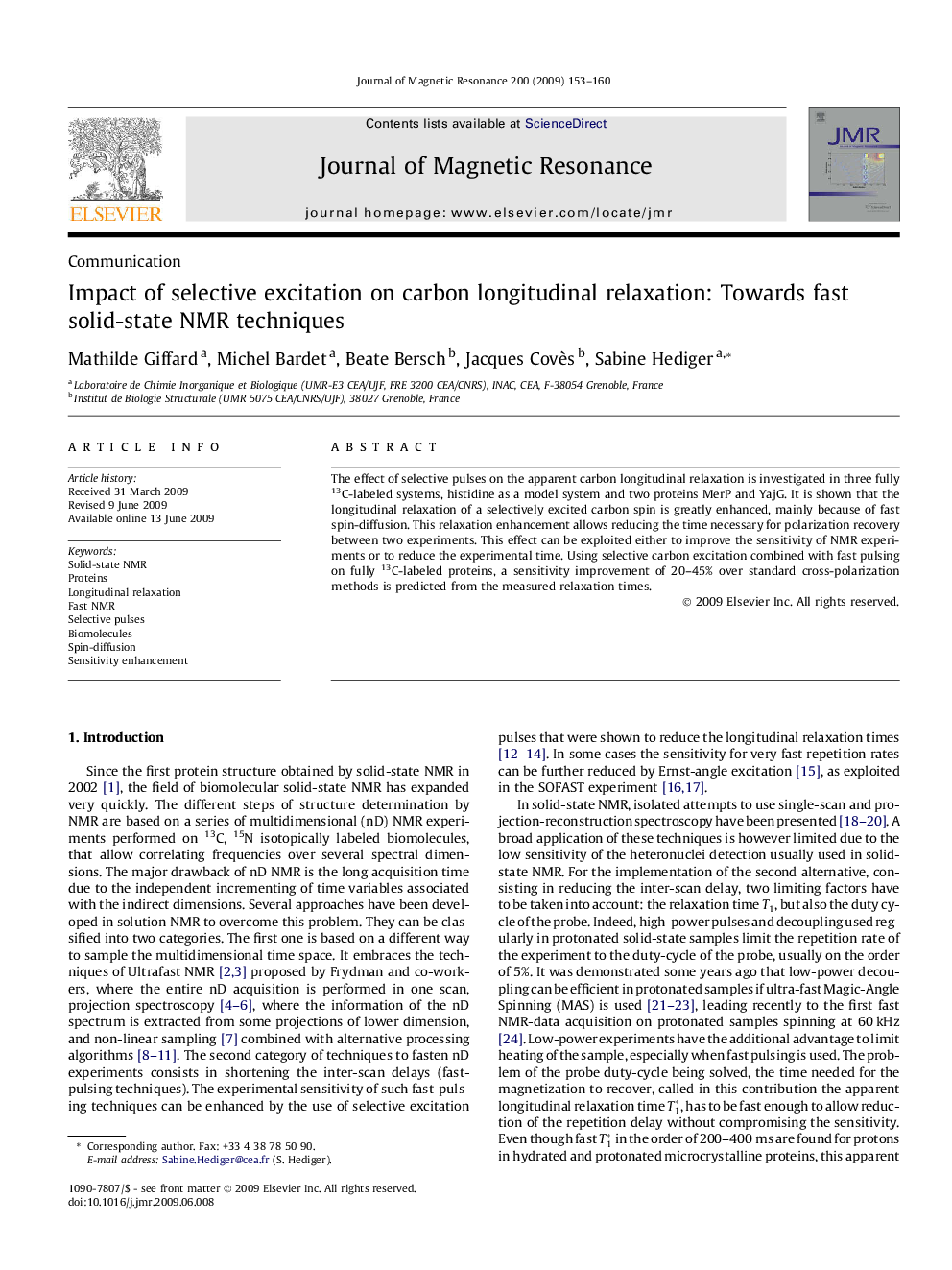| Article ID | Journal | Published Year | Pages | File Type |
|---|---|---|---|---|
| 5406881 | Journal of Magnetic Resonance | 2009 | 8 Pages |
The effect of selective pulses on the apparent carbon longitudinal relaxation is investigated in three fully 13C-labeled systems, histidine as a model system and two proteins MerP and YajG. It is shown that the longitudinal relaxation of a selectively excited carbon spin is greatly enhanced, mainly because of fast spin-diffusion. This relaxation enhancement allows reducing the time necessary for polarization recovery between two experiments. This effect can be exploited either to improve the sensitivity of NMR experiments or to reduce the experimental time. Using selective carbon excitation combined with fast pulsing on fully 13C-labeled proteins, a sensitivity improvement of 20-45% over standard cross-polarization methods is predicted from the measured relaxation times.
